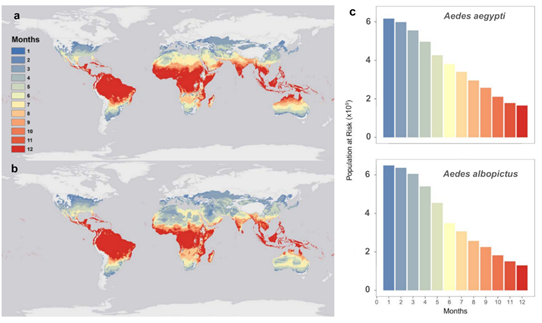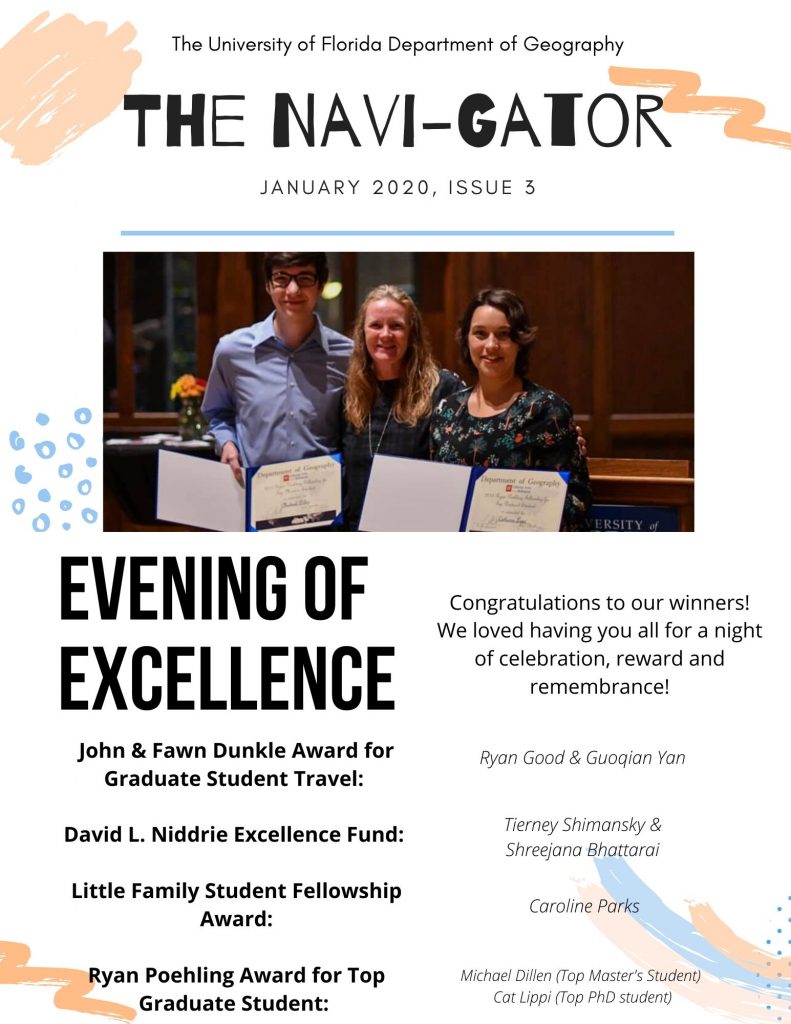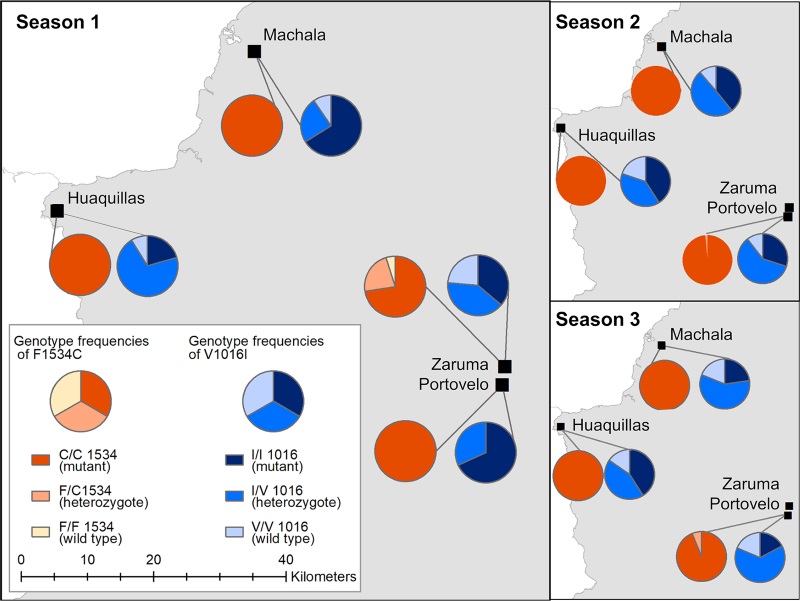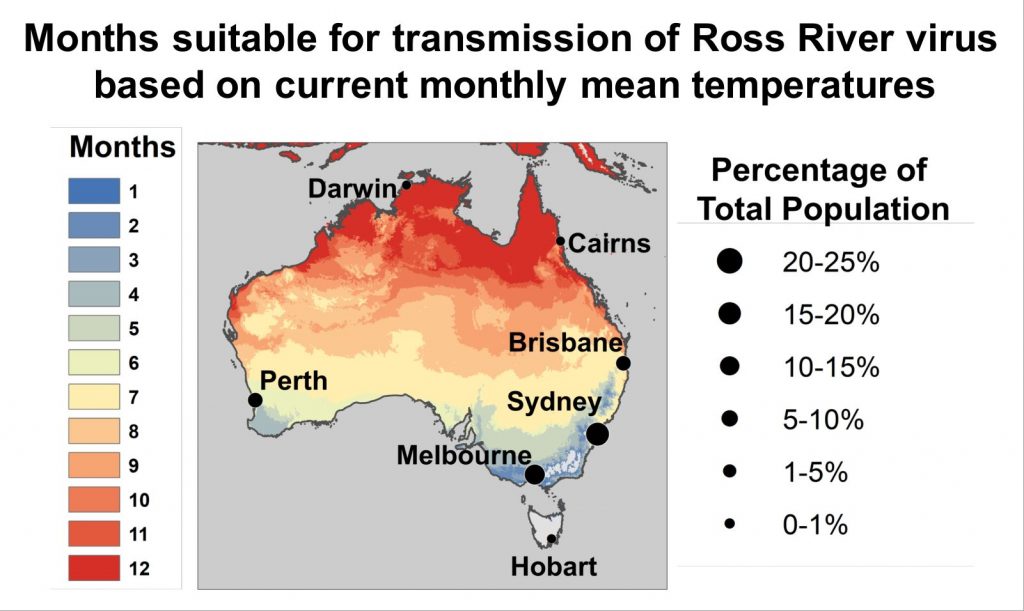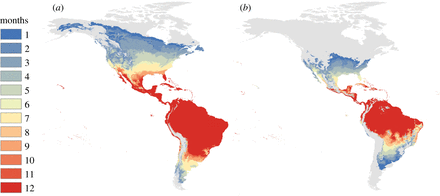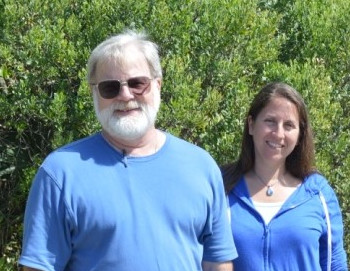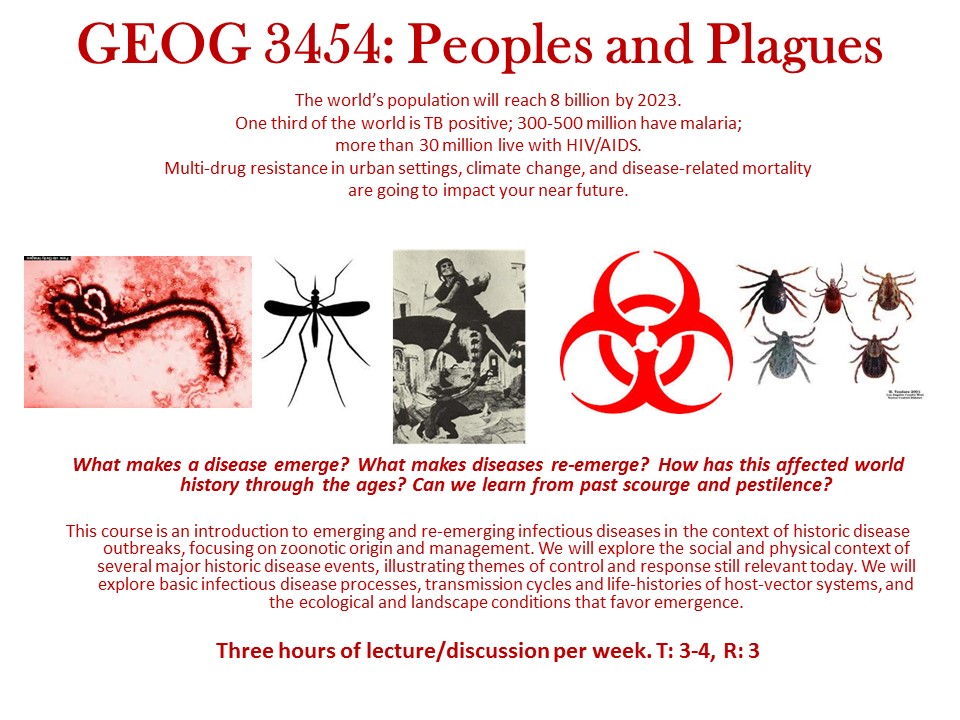Geography Colloquium: Decisions will be made – modeling vector borne disease at multiple scales for different purposes and use
Speaker: Dr. Sadie Ryan Associate Professor, Department of Geography, University of Florida Thursday, January 16, 2020 2:50-3:50 PM (Period 8) Turlington Hall Room 3018 University of Florida All are welcome to attend. Forecasting the impacts of climate change on vector-borne diseases (VBDs)—especially those under current public scrutiny and concern, such as malaria, dengue, chikungunya, and […]
